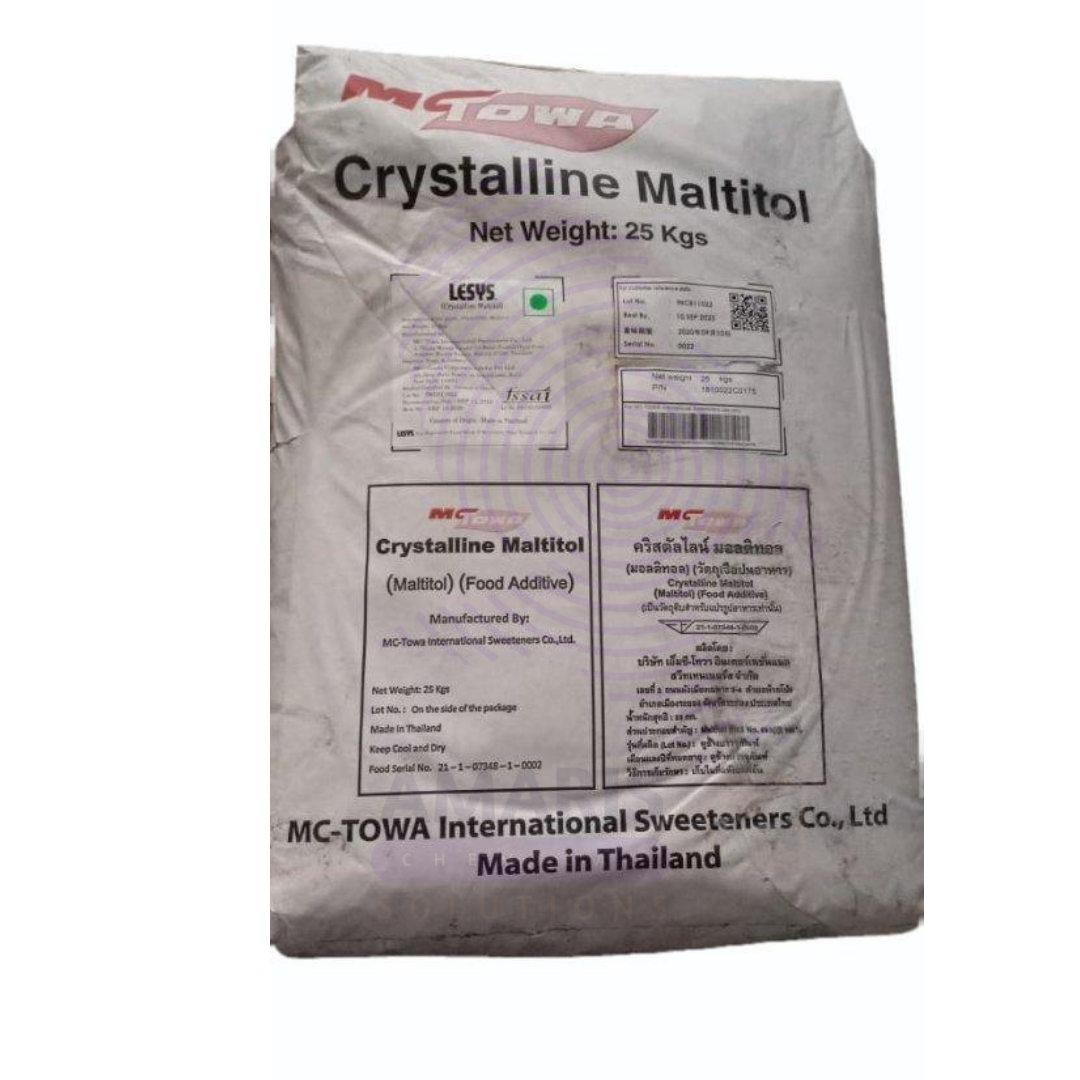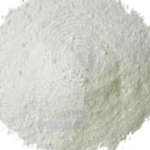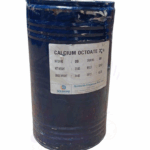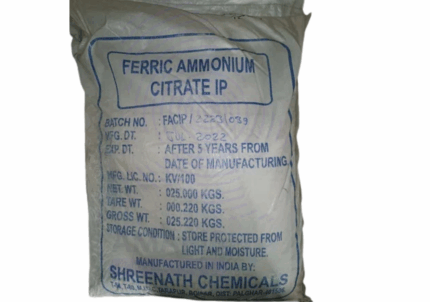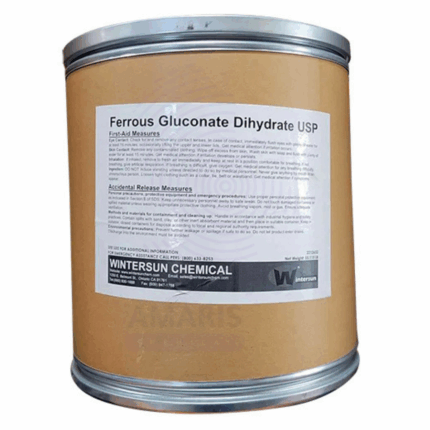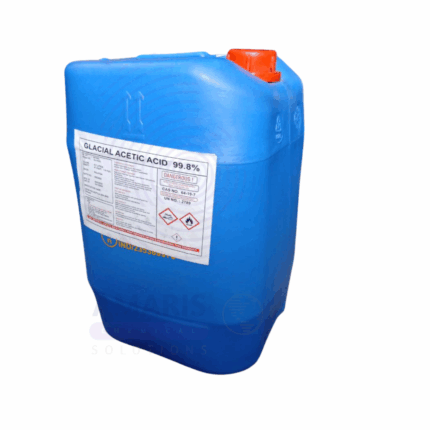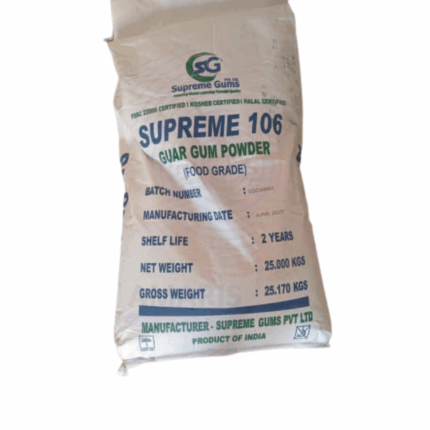Maltitol Powder
Whatsapp Order
Maltitol Powder is a white, crystalline polyol (sugar alcohol) derived from hydrogenated maltose obtained from starch sources like corn or wheat. It is a low-calorie, high-sweetness sugar substitute with about 90% the sweetness of sucrose but significantly fewer calories (approximately 2.1 kcal/g vs. 4 kcal/g for sugar). It has excellent solubility, low hygroscopicity, and provides a clean, sweet taste without an aftertaste. Maltitol Powder is widely used in food, pharmaceutical, and nutraceutical applications for its sugar-like properties, making it suitable for diabetic, low-carb, and dental-friendly formulations.
Category: Sweeteners
Tags: Baking ingredient, Food additive, Low-calorie sweetener, Maltitol Powder, Sugar substitute
Description
Table of Contents
Toggle
Maltitol Powder
Primary Uses
- Food & Beverage Industry
- Sugar Substitute: Used in sugar-free or reduced-calorie products such as candies, chocolate, chewing gum, baked goods, ice cream, and desserts.
- Texture Enhancer: Mimics the texture and bulk of sugar in baked goods and confections without crystallization issues.
- Moisture Retention: Helps maintain moisture and softness in baked goods due to its humectant properties.
- Sweetener for Diabetic Foods: Commonly used in diabetic-safe formulations as it has a low glycemic index and does not spike blood sugar significantly.
- Syrup Preparation: Can be dissolved in water to form sugar-free syrups for beverages and toppings.
- Chocolate Manufacturing: Preferred over other polyols in chocolate for its mild cooling effect and compatibility with cocoa butter.
- Pharmaceutical Industry
- Excipient: Used as a sweetener, binder, or filler in chewable tablets, lozenges, powders, and oral suspensions.
- Coating Agent: Employed in sugar-free tablet coatings and films for better taste and appearance.
- Tooth-Friendly Medicinals: Ideal in formulations where non-cariogenic (non-cavity-forming) ingredients are required.
- Pediatric and Geriatric Formulations: Added to enhance palatability of medications without adding sugar.
- Nutraceuticals & Dietary Supplements
- Functional Sweetener: Used in protein bars, diet snacks, and health supplements for calorie reduction.
- Fiber-Rich Formulations: Sometimes combined with dietary fibers to enhance digestive tolerance.
Secondary Uses
- Oral Care Products
- Sugar-Free Flavoring: Added to toothpaste, mouthwash, and oral rinses to enhance taste without promoting tooth decay.
- Dental-Friendly Chewing Gum: Promotes oral health due to its non-fermentable nature by oral bacteria.
- cosmetics & Personal Care
- Humectant: Occasionally used in moisturizers, lotions, and creams for its water-binding ability and skin-softening properties.
- Non-Sticky Sweetener: Used in lip care or edible cosmetic products for a mild sweetening effect.
- Pet Food and Animal Supplements
- Palatability Enhancer: Used in small quantities in specialized pet foods and supplements to improve taste.
- Laboratory and Research
- Sugar Model Compound: Used in testing as a sugar analog in digestion, metabolic, or food science research.
KEY PRODUCT FEATURES
1. Basic Identification Attributes
- Chemical Name (IUPAC): 4-O-α-D-Glucopyranosyl-D-sorbitol
- Common/Trade Name: Maltitol Powder
- CAS Number: 585-88-6
- HS Code: 2905.49.00
- Synonyms: Hydrogenated maltose; Maltisweet; Maltisorb; Sorbitol-glucose; E965 (EU food additive number); Sugar alcohol
2. Physical & Chemical Properties
- Physical State: Crystalline powder
- Color & Odor: White, odorless
- Melting Point: 145–150 °C
- Solubility: Highly soluble in water; insoluble in fats and oils
- Sweetness Index: ~90% of sucrose
- Calorific Value: Approx. 2.1 kcal/g
- pH (5% solution): 5.0 – 7.0
- Hygroscopicity: Low
- Cooling Effect: Mild (less than xylitol or erythritol)
3. Safety & Hazard Attributes
- GHS Classification: Not classified as hazardous
- Toxicity: Non-toxic; excessive consumption may cause gastrointestinal discomfort
- Exposure Limits: Not established; good industrial hygiene recommended
- Allergenicity: Generally recognized as safe (GRAS); gluten-free if sourced from corn
4. Storage & Handling Attributes
- Storage Conditions: Store in a dry, cool environment; avoid moisture and direct sunlight
- Container Type: Poly-lined kraft bags, fiber drums, or sealed food-grade containers
- Shelf Life: 24–36 months under recommended storage conditions
- Handling Precautions: Avoid inhalation of dust; use protective gear for large-scale handling
5. Regulatory & Compliance Attributes
- Approved as food additive (E965) by FDA, EFSA, JECFA, and Codex Alimentarius
- Labeled as a polyol/sugar alcohol in nutritional labeling
- Included in low-GI and sugar-free product certifications
- Complies with food-grade standards (FCC, USP, or equivalent)
6. Environmental & Health Impact
- Biodegradability: Readily biodegradable
- Ecotoxicity: Low to no environmental impact
- Bioaccumulation: Not expected
- Carcinogenicity/Mutagenicity: Not classified as carcinogenic or mutagenic
SAFETY HANDLING PRECAUTIONS
Safety Handling Precautions
- PPE Required: Dust mask, gloves, and goggles recommended for bulk handling
- Handling Guidelines: Avoid creating airborne dust; use in ventilated areas
- Storage Measures: Keep tightly sealed to prevent clumping or contamination
First Aid Measures
- Inhalation: Move to fresh air if dust causes discomfort
- Skin Contact: Wash with soap and water
- Eye Contact: Rinse eyes with clean water for several minutes
- Ingestion: Safe for consumption in regulated quantities; large intake may cause laxative effect
Firefighting Measures
- Fire Hazards: Combustible in powdered form under dust-air mixture conditions
- Extinguishing Media: Use dry chemical, water spray, or CO₂ extinguishers
- Special Precautions: Avoid dust cloud generation; remove ignition sources
- Hazardous Combustion Products: May release carbon dioxide and carbon monoxide
Related products
Ferric Ammonium Citrate
Ferric Ammonium Citrate is a dark green to black crystalline or granular inorganic compound composed of iron, ammonium ions, and citrate ions. It is a complex salt of citric acid with ferric iron (Fe³⁺) and ammonium. This compound is highly soluble in water, forming a greenish solution, and is widely utilized as a source of iron in various chemical, pharmaceutical, photographic, and food applications. It acts as a mild oxidizing agent and an iron supplement, valued for its bioavailability and ease of incorporation into formulations. Ferric Ammonium Citrate is typically available in different formulations distinguished by their water and ammonium content, such as green and brown types.
Ferrous Gluconate
Ferrous Gluconate is an iron salt of gluconic acid, appearing as a pale greenish-blue or green crystalline powder or granules. It is widely used as a nutritional iron supplement and food additive due to its good bioavailability and relatively low toxicity compared to other iron salts. Ferrous Gluconate is water-soluble, providing a stable source of ferrous iron (Fe²⁺) that is easily absorbed in the gastrointestinal tract. This compound is commonly employed in pharmaceuticals, food fortification, and medical formulations to treat or prevent iron deficiency anemia. It is also used as a reducing agent and color stabilizer in various industrial applications.
Glacial Acetic Acid Food Grade
Glacial Acetic Acid Food Grade is a clear, colorless liquid organic compound with a pungent vinegar-like odor. It is a high-purity form of acetic acid specifically produced and processed for safe use in food applications. As the main component of vinegar (after dilution), it serves as a critical flavoring agent, pH adjuster, and preservative in the food industry. Food-grade acetic acid typically has a concentration of 80-100% (glacial acetic acid) or is diluted to lower concentrations (4-20%) for specific applications.
Guar Gum
Guar Gum is a natural polysaccharide extracted from the endosperm of the guar bean (Cyamopsis tetragonoloba). It appears as an off-white to cream-colored powder with a neutral odor and bland taste. Guar Gum is a galactomannan composed mainly of mannose and galactose units, known for its excellent water-binding, thickening, and stabilizing properties. It forms highly viscous solutions even at low concentrations, making it a versatile hydrocolloid used widely across food, pharmaceutical, cosmetic, oilfield, and industrial applications.
Magnesium Chloride
Magnesium Chloride is a white crystalline salt or granular solid composed of magnesium and chloride ions, commonly found as the hexahydrate form (MgCl₂·6H₂O). It is highly soluble in water, forming a clear, colorless solution with a slightly bitter saline taste. Magnesium Chloride is valued for its hygroscopic properties and is widely used across multiple industries including de-icing, chemical manufacturing, agriculture, food, pharmaceutical, and textile applications. It acts as a source of magnesium, a vital mineral for various biological and industrial processes.
Stevia
Stevia 25kg refers to a bulk packaging format of high-purity stevia extract, a natural, zero-calorie sweetener derived from the leaves of Stevia rebaudiana. It contains steviol glycosides—primarily Rebaudioside A and Stevioside—which are responsible for its intense sweetness. Stevia is widely used as a sugar substitute in food and beverage formulations, offering a healthier alternative for calorie-conscious and diabetic consumers. This product is typically available in powder or granular form, suitable for large-scale commercial use.
Sucrose
Sucrose, commonly known as table sugar, is a natural disaccharide composed of glucose and fructose. It is a widely used sweetening agent in food and beverages, known for its clean, sweet taste and excellent solubility in water. Supplied in 25kg bags, sucrose serves as a key ingredient in cooking, baking, and industrial applications. It also functions as a preservative, texture enhancer, and fermentation substrate in various industries.
Xylitol
Xylitol is a naturally occurring sugar alcohol used as a low-calorie sweetener. It is derived primarily from plant materials such as birch wood and corn cobs. Xylitol has sweetness comparable to sucrose but with fewer calories, making it popular in sugar-free and diabetic-friendly food products. It also exhibits dental health benefits by reducing the risk of cavities.


 Preservatives(food)
Preservatives(food) Flavor Enhancers
Flavor Enhancers Acidulants
Acidulants Sweeteners
Sweeteners Antioxidants
Antioxidants Colorants(food)
Colorants(food) Nutraceutical Ingredients (food)
Nutraceutical Ingredients (food) Nutrient Supplements
Nutrient Supplements Emulsifiers
Emulsifiers
 Collectors
Collectors Dust Suppressants
Dust Suppressants Explosives and Blasting Agents
Explosives and Blasting Agents Flocculants and Coagulants
Flocculants and Coagulants Frothers
Frothers Leaching Agents
Leaching Agents pH Modifiers
pH Modifiers Precious Metal Extraction Agents
Precious Metal Extraction Agents
 Antioxidants(plastic)
Antioxidants(plastic) Colorants (Pigments, Dyes)
Colorants (Pigments, Dyes) Fillers and Reinforcements
Fillers and Reinforcements Flame Retardants
Flame Retardants Monomers
Monomers Plasticizers
Plasticizers Polymerization Initiators
Polymerization Initiators Stabilizers (UV, Heat)
Stabilizers (UV, Heat)
 Antifoaming Agents
Antifoaming Agents Chelating Agents
Chelating Agents Coagulants and Flocculants
Coagulants and Flocculants Corrosion Inhibitors
Corrosion Inhibitors Disinfectants and Biocides
Disinfectants and Biocides Oxidizing Agents
Oxidizing Agents pH Adjusters
pH Adjusters Scale Inhibitors( water)
Scale Inhibitors( water)
 Antioxidants(cosmetic)
Antioxidants(cosmetic) Emollients
Emollients Fragrances and Essential Oils
Fragrances and Essential Oils Humectants
Humectants Preservatives
Preservatives Surfactants(cosmetic)
Surfactants(cosmetic) Thickeners
Thickeners UV Filters
UV Filters
 Fertilizers
Fertilizers Soil Conditioners
Soil Conditioners Plant Growth Regulators
Plant Growth Regulators Animal Feed Additives
Animal Feed Additives Biostimulants
Biostimulants Pesticides (Herbicides, Insecticides, Fungicides)
Pesticides (Herbicides, Insecticides, Fungicides)
 Active Pharmaceutical Ingredients (APIs)
Active Pharmaceutical Ingredients (APIs) Excipients
Excipients Solvents(pharmaceutical)
Solvents(pharmaceutical) Antibiotics
Antibiotics Antiseptics and Disinfectants
Antiseptics and Disinfectants Vaccine Adjuvants
Vaccine Adjuvants Nutraceutical Ingredients (pharmaceutical)
Nutraceutical Ingredients (pharmaceutical) Analgesics & Antipyretics
Analgesics & Antipyretics
 Analytical Reagents
Analytical Reagents Solvents(lab)
Solvents(lab) Chromatography Chemicals
Chromatography Chemicals Spectroscopy Reagents
Spectroscopy Reagents microbiology-and-cell-culture-reagents
microbiology-and-cell-culture-reagents Molecular Biology Reagents
Molecular Biology Reagents Biochemical Reagents
Biochemical Reagents Inorganic and Organic Standards
Inorganic and Organic Standards Laboratory Safety Chemicals
Laboratory Safety Chemicals Specialty Laboratory Chemicals(Special Laboratory Equipment)
Specialty Laboratory Chemicals(Special Laboratory Equipment)
 Demulsifiers
Demulsifiers Hydraulic Fracturing Fluids
Hydraulic Fracturing Fluids Scale Inhibitors(oil)
Scale Inhibitors(oil) Surfactants(oil)
Surfactants(oil) Drilling Fluids
Drilling Fluids
 Dyes and Pigments
Dyes and Pigments Bleaching Agents
Bleaching Agents Softening Agents
Softening Agents Finishing Agents
Finishing Agents Antistatic Agents
Antistatic Agents
 Admixtures
Admixtures Waterproofing Agents
Waterproofing Agents Sealants and Adhesives
Sealants and Adhesives Curing Compounds
Curing Compounds Concrete Repair Chemicals
Concrete Repair Chemicals Anti-Corrosion Coatings
Anti-Corrosion Coatings
 Surfactants(cleaning)
Surfactants(cleaning) Builders
Builders Enzymes
Enzymes Solvents (Cleaning)
Solvents (Cleaning) Fragrances
Fragrances
 Electronic Chemicals
Electronic Chemicals Catalysts
Catalysts Lubricants
Lubricants Photographic Chemicals
Photographic Chemicals Refrigerants
Refrigerants Automotive chemicals
Automotive chemicals Pyrotechnic Chemicals
Pyrotechnic Chemicals
 Biodegradable Surfactants
Biodegradable Surfactants Bio-based Solvents
Bio-based Solvents Renewable Polymers
Renewable Polymers Carbon Capture Chemicals
Carbon Capture Chemicals Wastewater Treatment Chemicals
Wastewater Treatment Chemicals
 Pigments
Pigments Solvents(paint)
Solvents(paint) Specialty Coatings
Specialty Coatings Binders/Resins
Binders/Resins Additives
Additives Driers
Driers Anti-Corrosion Agents
Anti-Corrosion Agents Functional Coatings
Functional Coatings Application-Specific Coatings
Application-Specific Coatings
 Leavening Agents
Leavening Agents Dough Conditioners
Dough Conditioners Flour Treatments
Flour Treatments Fat Replacers
Fat Replacers Decoratives
Decoratives Preservatives(baking)
Preservatives(baking)
 Plasticizers & Softeners
Plasticizers & Softeners Reinforcing Agents
Reinforcing Agents Adhesion Promoters
Adhesion Promoters Vulcanizing Agents
Vulcanizing Agents Antidegradants
Antidegradants Blowing Agents
Blowing Agents Fillers & Extenders
Fillers & Extenders Accelerators & Retarders
Accelerators & Retarders